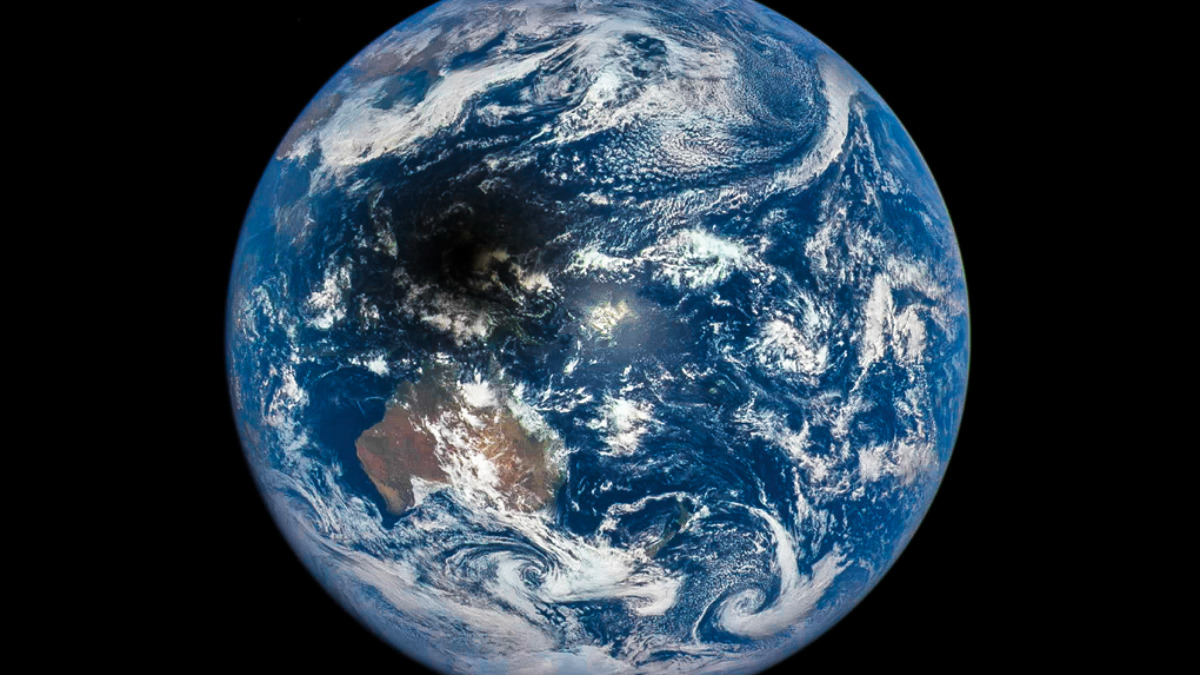How life on Earth began
New discovery sheds light on beginnings of our planet - and could help in search for aliens

A free daily email with the biggest news stories of the day – and the best features from TheWeek.com
You are now subscribed
Your newsletter sign-up was successful
The conditions for life on Earth were created when the planet crashed into another body the size of Mars about 4.4 billion years ago, a new study claims.
For life to emerge on an otherwise dead planet, “an assortment of chemical compounds, or volatile elements, are required, including carbon, nitrogen and sulfur”, says science news site Gizmodo. Conventional scientific thinking has always been that Earth’s volatile elements arrived through a steady bombardment of ancient meteorites.
But according to the “giant impact hypothesis”, outlined in a newly published paper in journal Science Advances, a single catastrophic cosmic crash delivered most of the volatile elements essential for life to the Earth.
The Week
Escape your echo chamber. Get the facts behind the news, plus analysis from multiple perspectives.

Sign up for The Week's Free Newsletters
From our morning news briefing to a weekly Good News Newsletter, get the best of The Week delivered directly to your inbox.
From our morning news briefing to a weekly Good News Newsletter, get the best of The Week delivered directly to your inbox.
Lab experiments and computer simulations by scientists at Rice University, in Texas, “suggested that debris from the destroyed planet deposited the life elements on Earth”, included most of the nitrogen and carbon found in all living things, reports The Independent.
The scientists believe the debris from the collision also created the Moon, while the so-called “donor planet” is thought to have been an embryonic world with a sulphur-rich core.
Lead scientist Rajdeep Dasgupta said: “From the study of primitive meteorites, scientists have long known that Earth and other rocky planets in the inner solar system are volatile-depleted.
“But the timing and mechanism of volatile delivery has been hotly debated. Ours is the first scenario that can explain the timing and delivery in a way that is consistent with all the geochemical evidence.”
A free daily email with the biggest news stories of the day – and the best features from TheWeek.com
He added that the study could boost scientists’ understanding of how the ingredients for life might form on other similarly rocky planets like our own.
“This study suggests that a rocky, Earth-like planet gets more chances to acquire life-essential elements if it forms and grows from giant impacts with planets that have sampled different building blocks, perhaps from different parts of a protoplanetary disk,” he said.
However, Dasgupta admitted to Gizmodo that the study was “based entirely on the geochemical behavior of elements” and didn’t look at the “dynamics or physical processes involved in planetary accretion and growth”.
The team now hope to integrate their new theoretical model with physical models.
“In other words, this ain’t over yet,” says the site.
-
 Minnesota's legal system buckles under Trump's ICE surge
Minnesota's legal system buckles under Trump's ICE surgeIN THE SPOTLIGHT Mass arrests and chaotic administration have pushed Twin Cities courts to the brink as lawyers and judges alike struggle to keep pace with ICE’s activity
-
 Big-time money squabbles: the conflict over California’s proposed billionaire tax
Big-time money squabbles: the conflict over California’s proposed billionaire taxTalking Points Californians worth more than $1.1 billion would pay a one-time 5% tax
-
 ‘The West needs people’
‘The West needs people’Instant Opinion Opinion, comment and editorials of the day
-
 Epstein files topple law CEO, roil UK government
Epstein files topple law CEO, roil UK governmentSpeed Read Peter Mandelson, Britain’s former ambassador to the US, is caught up in the scandal
-
 Iran and US prepare to meet after skirmishes
Iran and US prepare to meet after skirmishesSpeed Read The incident comes amid heightened tensions in the Middle East
-
 Israel retrieves final hostage’s body from Gaza
Israel retrieves final hostage’s body from GazaSpeed Read The 24-year-old police officer was killed during the initial Hamas attack
-
 China’s Xi targets top general in growing purge
China’s Xi targets top general in growing purgeSpeed Read Zhang Youxia is being investigated over ‘grave violations’ of the law
-
 Panama and Canada are negotiating over a crucial copper mine
Panama and Canada are negotiating over a crucial copper mineIn the Spotlight Panama is set to make a final decision on the mine this summer
-
 Why Greenland’s natural resources are nearly impossible to mine
Why Greenland’s natural resources are nearly impossible to mineThe Explainer The country’s natural landscape makes the task extremely difficult
-
 Iran cuts internet as protests escalate
Iran cuts internet as protests escalateSpeed Reada Government buildings across the country have been set on fire
-
 US nabs ‘shadow’ tanker claimed by Russia
US nabs ‘shadow’ tanker claimed by RussiaSpeed Read The ship was one of two vessels seized by the US military